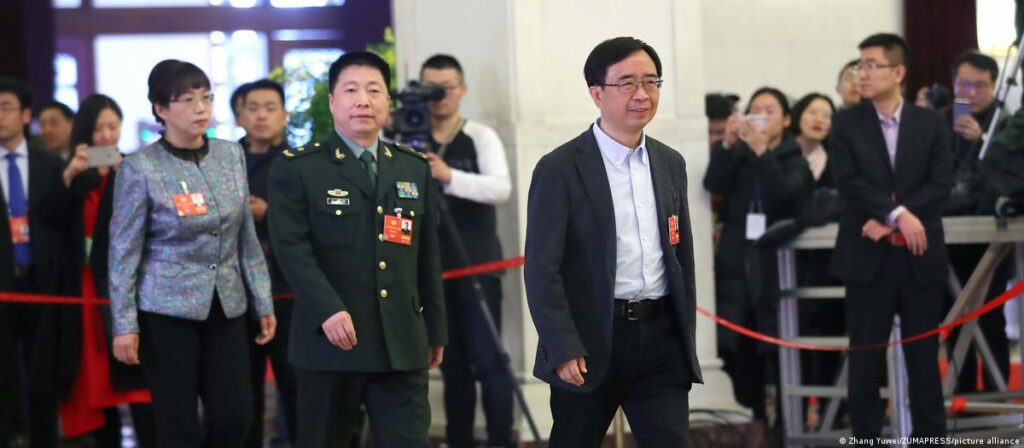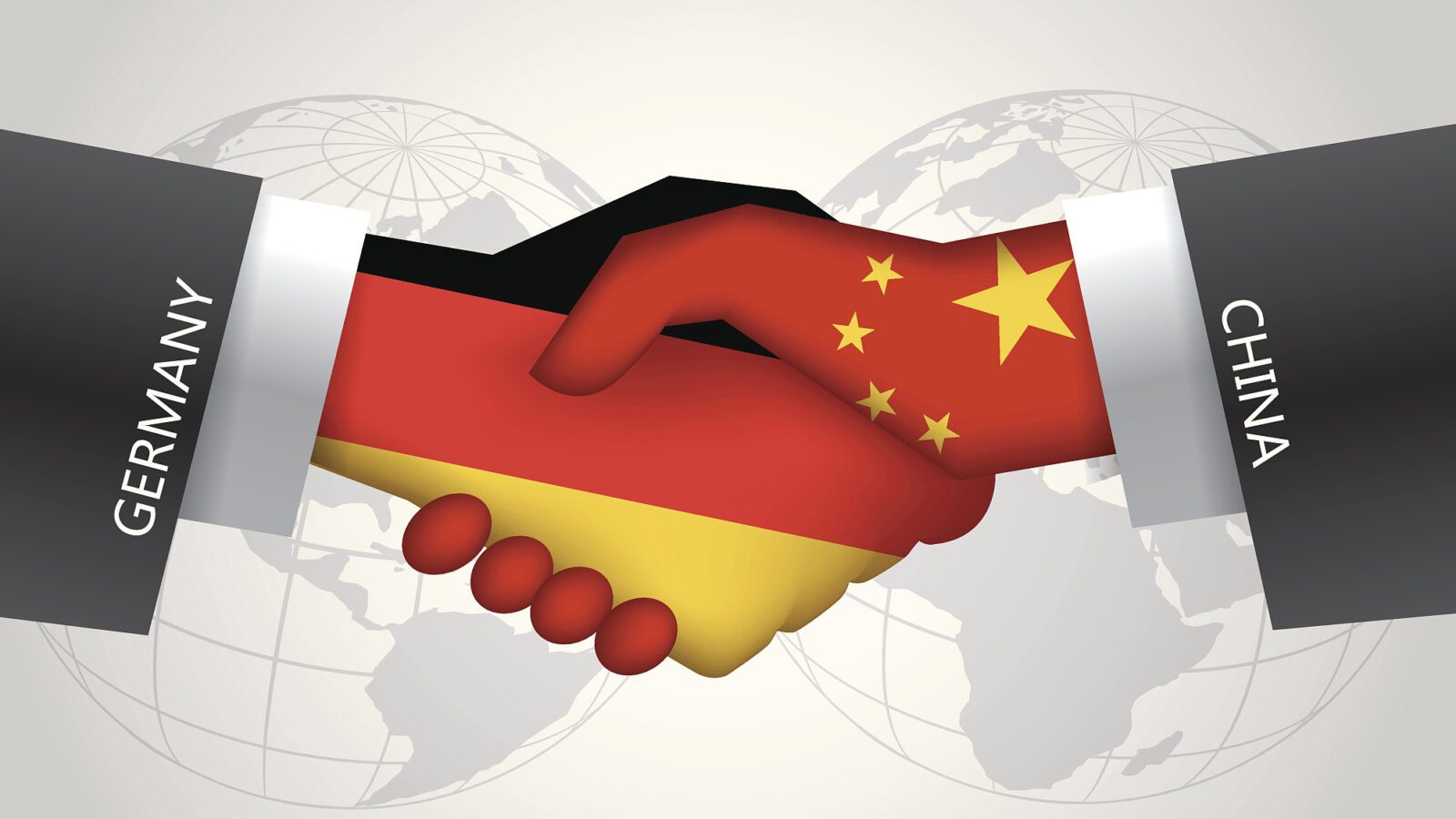Germany’s oldest university ended up involved in Beijing’s quantum military strategy by funding innovative research by Chinese scientists and maintaining close collaboration with an elite university in China.
(DW) In February 2022, an NATO webinar took place at the University of Heidelberg. The virtual event was organized by the Supreme Allied Commander Transformation (SACT) strategic command, focused on the future of conducting warfare.
Over the course of an hour, the webinar looked at China’s successes in quantum research. And it was at that point that Heidelberg, Germany’s oldest university and a long-time partner of an elite university in China that maintains contacts with the Chinese war industry, was mentioned.
As early as 2019 the American strategic intelligence firm Strider had called Heidelberg University “the most important foreign partner behind China’s rapid advances in the dual use of quantum technology.” Dual use means that the technology can be used for both civilian and military purposes.
Quantum technology is already used today in cell phones and navigation devices. It has the potential to change the world even more decisively than the Internet.
In partnership with the investigative journalism center Correctiv, DW has reconstructed the Heidelberg case.

A renowned scientist
It all started in 2003 when Chinese quantum physicist Pan Jian-wei began building his own research group at Heidelberg University. Renowned and several times awarded, he received million-dollar research grants in Europe.
During his five years in Heidelberg, Pan maintained close contact with his alma matter, the University of Science and Technology of China (USTC). It was there that he recruited promising young researchers. Already in Heidelberg, they too received resources of German or European origin.
In 2008, Pan returned to USTC. With him, he took not only some of his students but also his laboratory and research projects. And this despite the fact that the European Union had just approved a new grant of 1.4 million euros for his research group in Heidelberg.
A German at USTC
The close cooperation between the two universities was maintained. Pan continued to send young talent to Germany, who would later return to USTC. In 2011, both sides signed an academic exchange agreement.
At the time, such cooperations were politically and economically welcome in Germany, as China was seen as an important trading partner.
In 2013, one of the few Western researchers to accept an offer to do research at USTC under the Chinese state program Thousand Talents was German physicist Matthias Weidemüller from Heidelberg.
In retrospect, Weidemüller says he set clear conditions for himself to accept the offer. “Nobody is going to tell me what I should research about,” he explains. All the results of his research are public, and his lab could be visited by anyone, he argues. Independence and transparency are important to him, he says.
Weidemüller is, to this day, an honorary professor at USTC. So is Pan at the University of Heidelberg. But the political context has changed radically, and not just because of the covid-19 pandemic.
From Partner to Rival
China, the then wooed partner, is now a “systemic rival” of Germany with an increasingly incisive international presence. Behind the scenes, the current German government has been discussing its new China strategy for months.
Internationally, China is competing with the United States for quantum supremacy. “Military-civilian fusion” is state doctrine in China, everything is subordinated to national security. By 2049, the Chinese regime wants to have the most modern armed forces in the world.
In quantum research, the most advanced sector is communication. This is about data security and the exchange of encrypted information, something of great interest from a military point of view.
One of the world’s most influential
China is a leader in quantum communication – due to Pan Jian-wei. The American magazine Time put the quantum researcher on its list of the world’s one hundred most influential people of 2018. A year later, the American strategic intelligence firm Strider claimed that Pan has links to the Chinese war industry.
To DW, Pan assured in writing that since his return to China, “none of his projects have received military support.” At the same time, he stressed, “Even if certain technologies may have military use, this is something that NO scientist can predict or control.”
“I am fully convinced that this emerging technology will bring broad advantages to mankind,” he stressed.
Branch in Xinjiang
But it is easy to discover that his name is associated with the company Quantum CTek. This start-up was founded by Pan shortly after his return from Heidelberg. Today he is its second largest shareholder. The largest is USTC.
Since 2017, the company specializing in quantum communication has had a branch in Xinjiang province. There lives the Uighur Muslim minority, who suffer abuse, are sent to re-education camps and guarded by the Chinese regime.
Physicist Yangyang Cheng, who focuses on elementary particles and studied at USTC, comments that Quantum CTek’s presence in Xinjiang is “morally reprehensible” and cannot be a fluke.
“The fact that such a young company has opened a branch there suggests that it has close contacts with the Chinese state security apparatus,” says Cheng, who is of Chinese origin and has been living in the US for more than ten years.
Pan told DW he doesn’t know why Quantum CTek has a branch in Xinjiang, because since 2011 he “no longer participates in the management of the company, except as a shareholder.
Quantum CTek did not respond to DW’s inquiries.
US Sanctions
The United States imposed sanctions on Quantum CTek in November 2021. And also on the USTC laboratory complex, with which Weidemüller is associated. The reason: support for “the military modernization of the People’s Liberation Army.” The sanctions are aimed at preventing the transfer of technology and knowledge from the US to China.
“You can’t just ignore that. Then you would be a person alien to the world,” Weidemüller comments on the sanctions. He denies, however, a connection with the scientific work itself. “By the way you do your research you can determine how close or far you are from practical application.” Turning to basic research, he sees himself as far removed from Quantum CTek.
But the new world geopolitical reality presses on. Since the beginning of 2022, also the University of Heidelberg has a unit to check whether international research projects could have a possible military use.
Something necessary, because with the USTC, Heidelberg University has a partner that cooperates with major Chinese arms companies in the area of quantum research and also with China’s leading military university, the NUDT.
